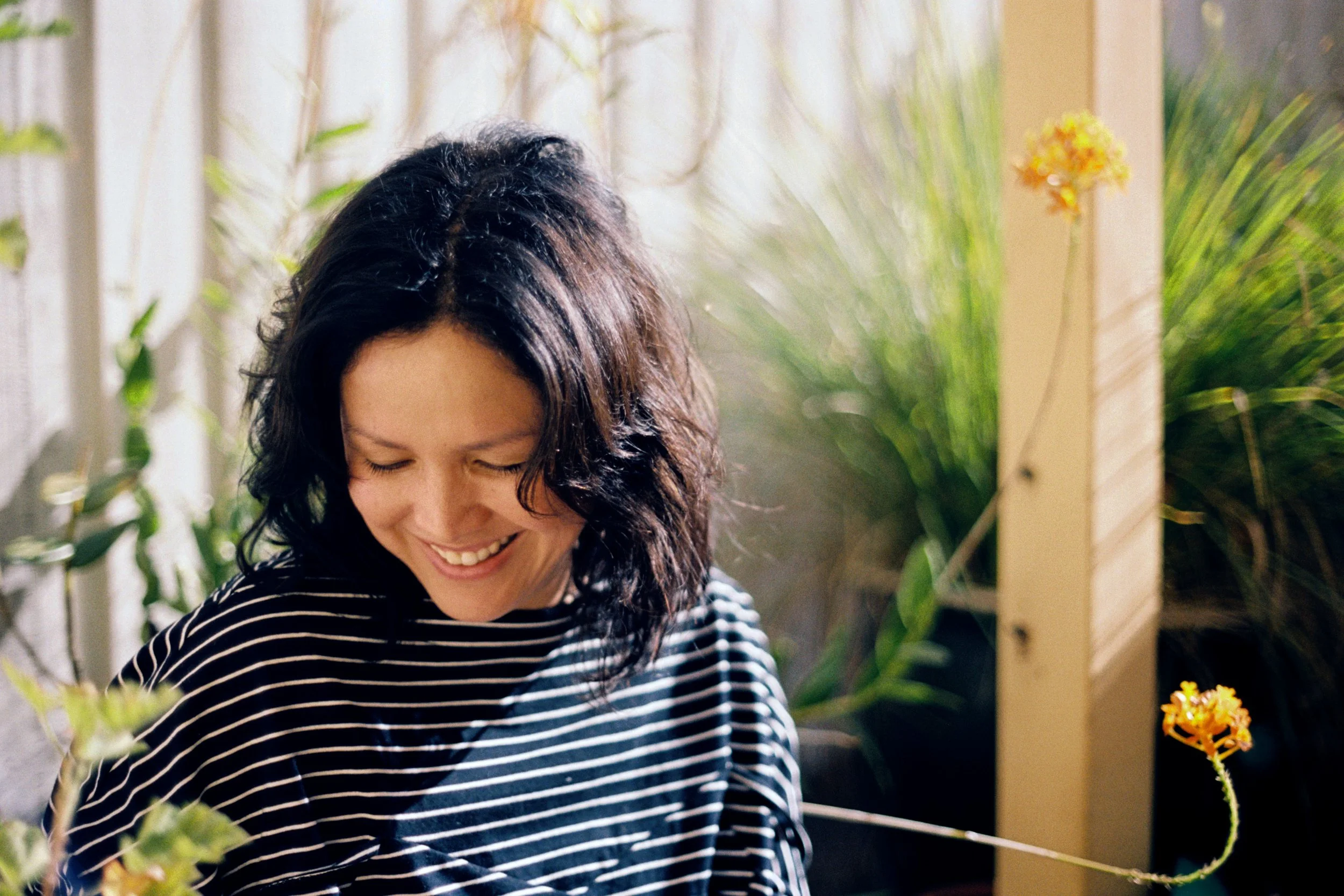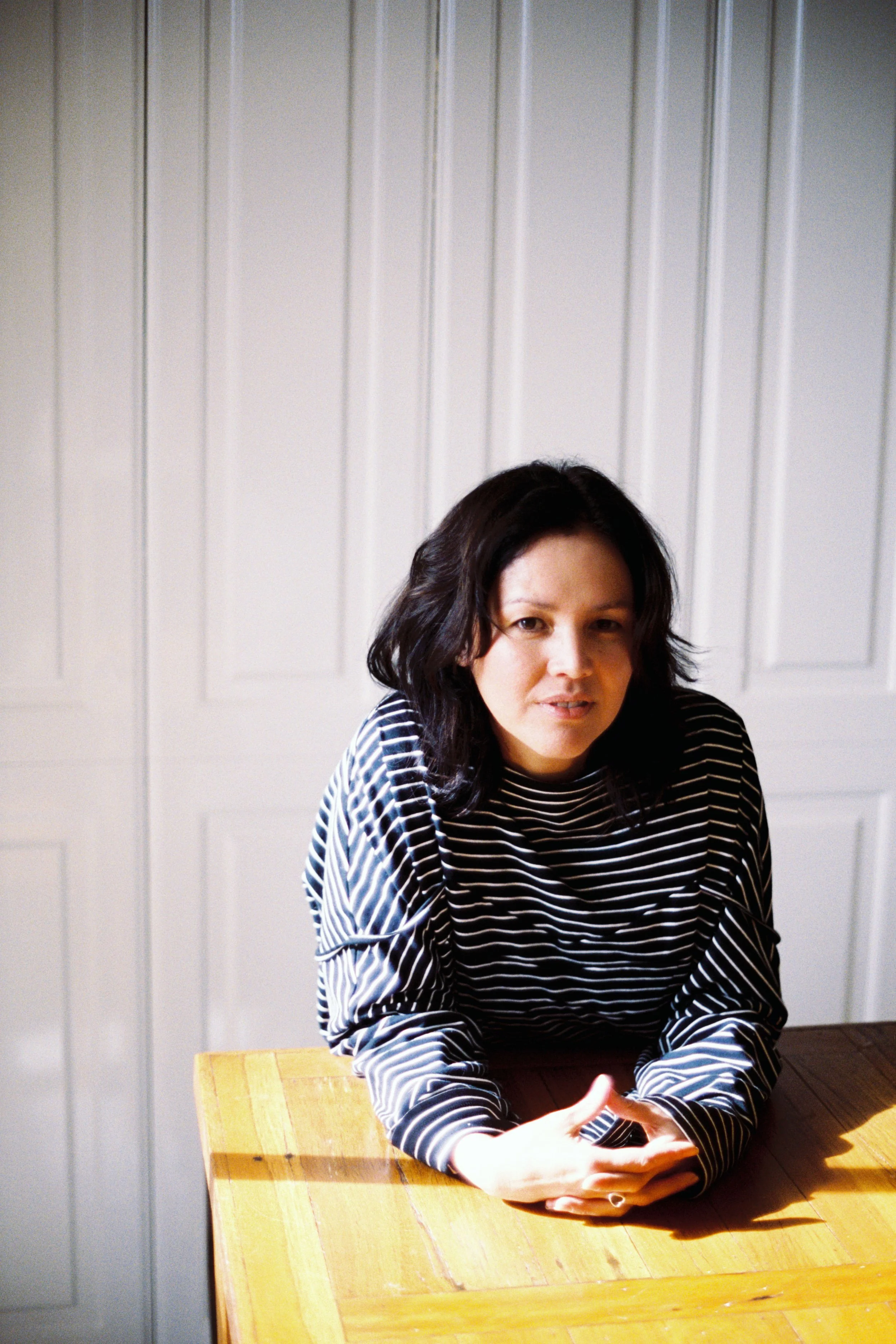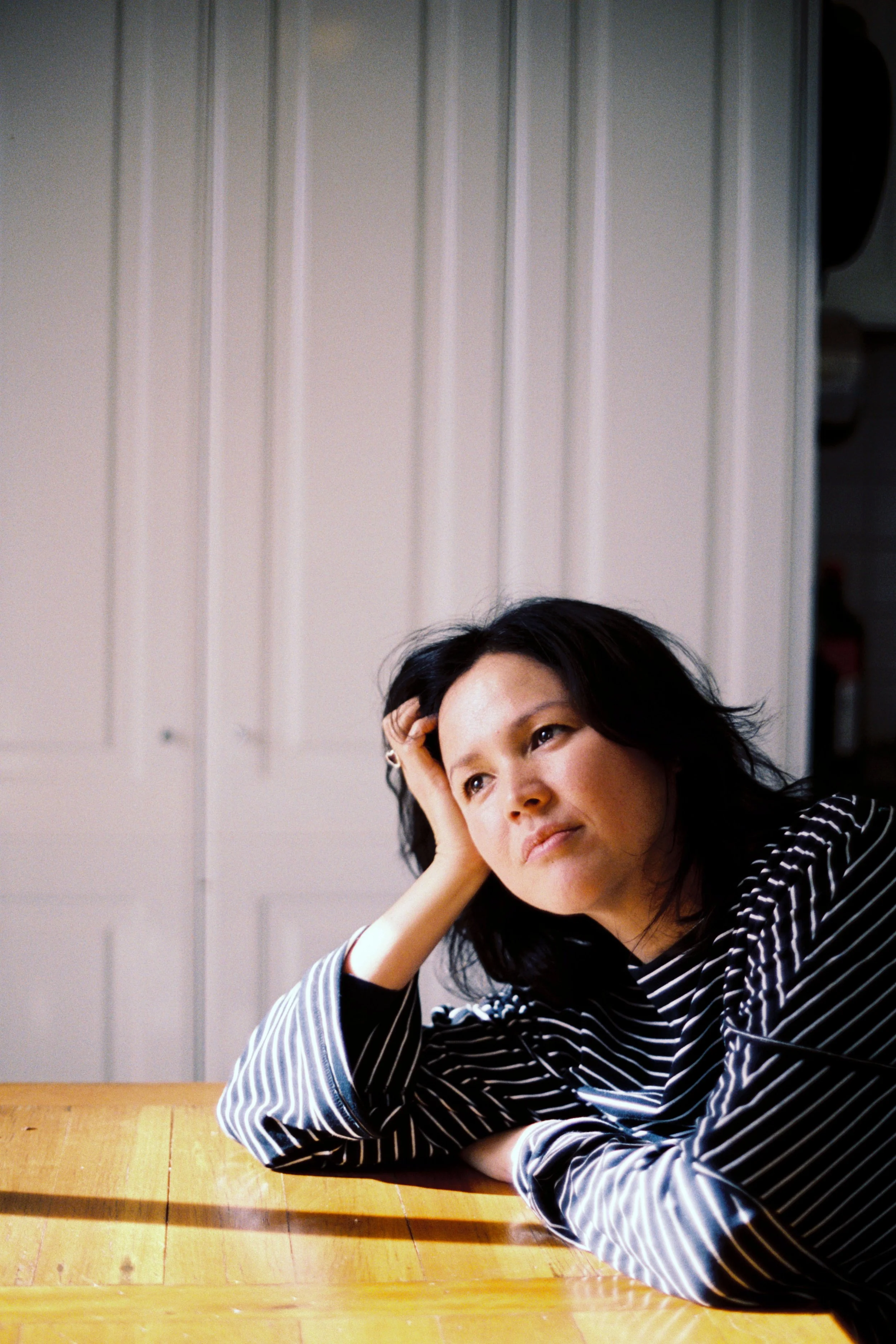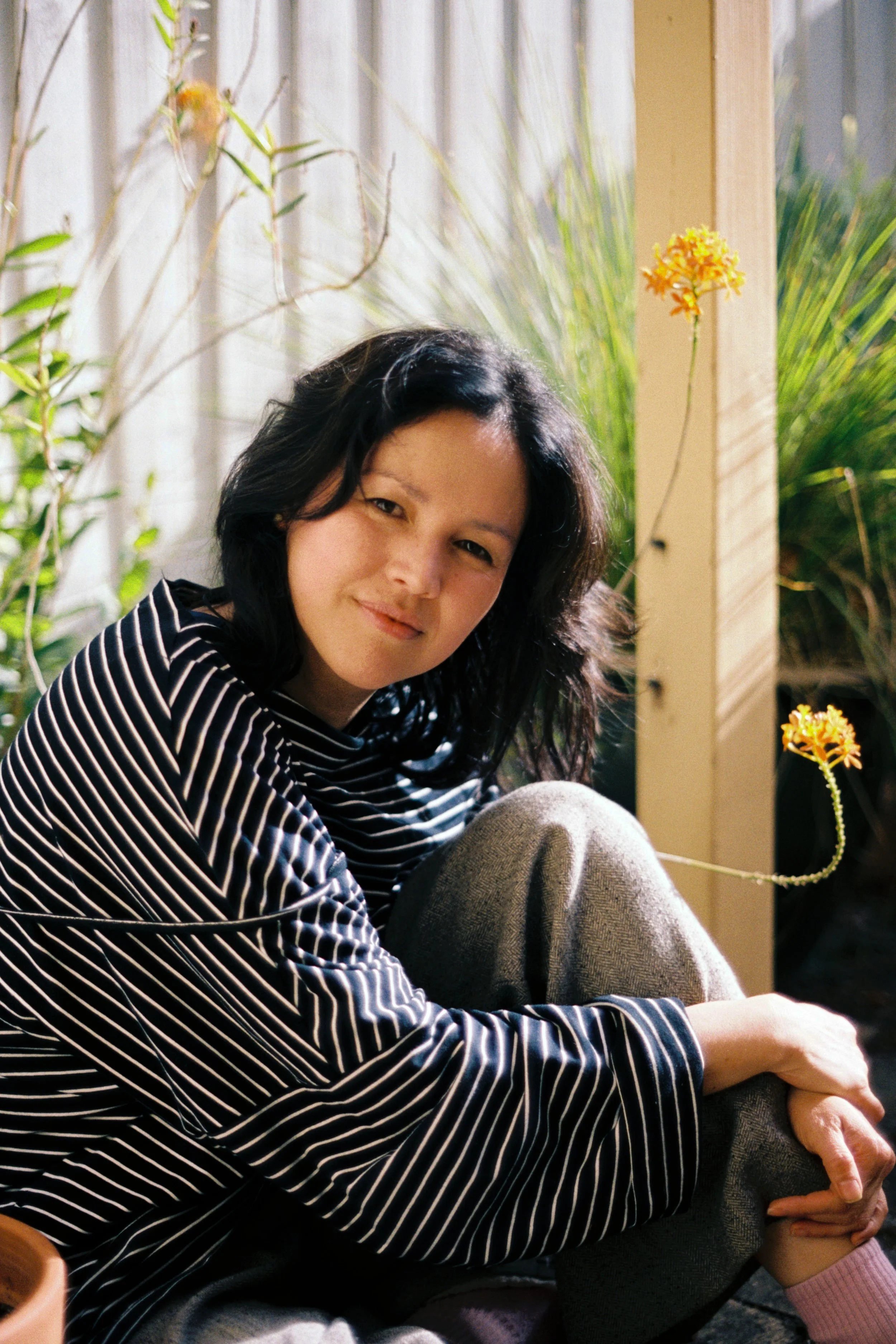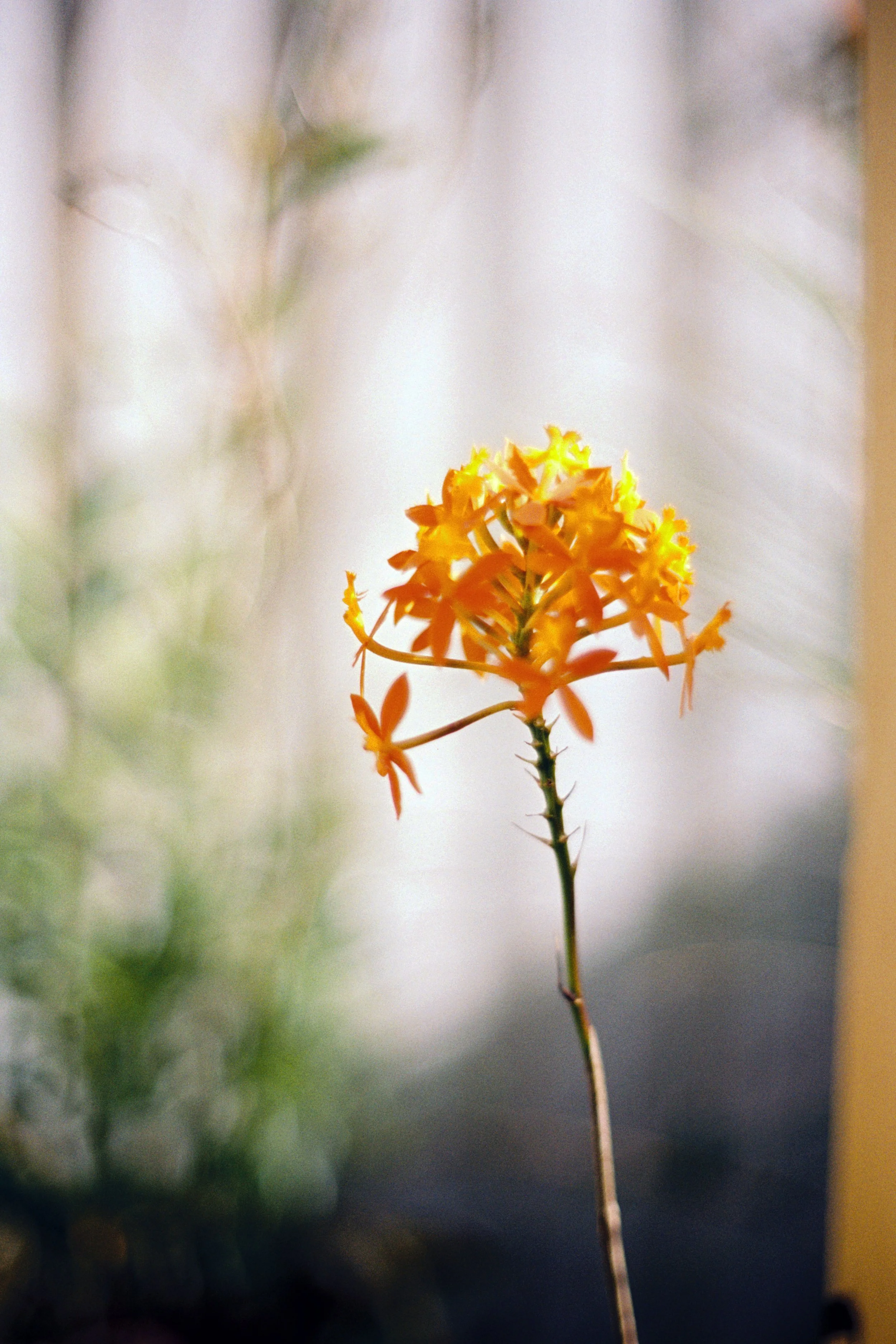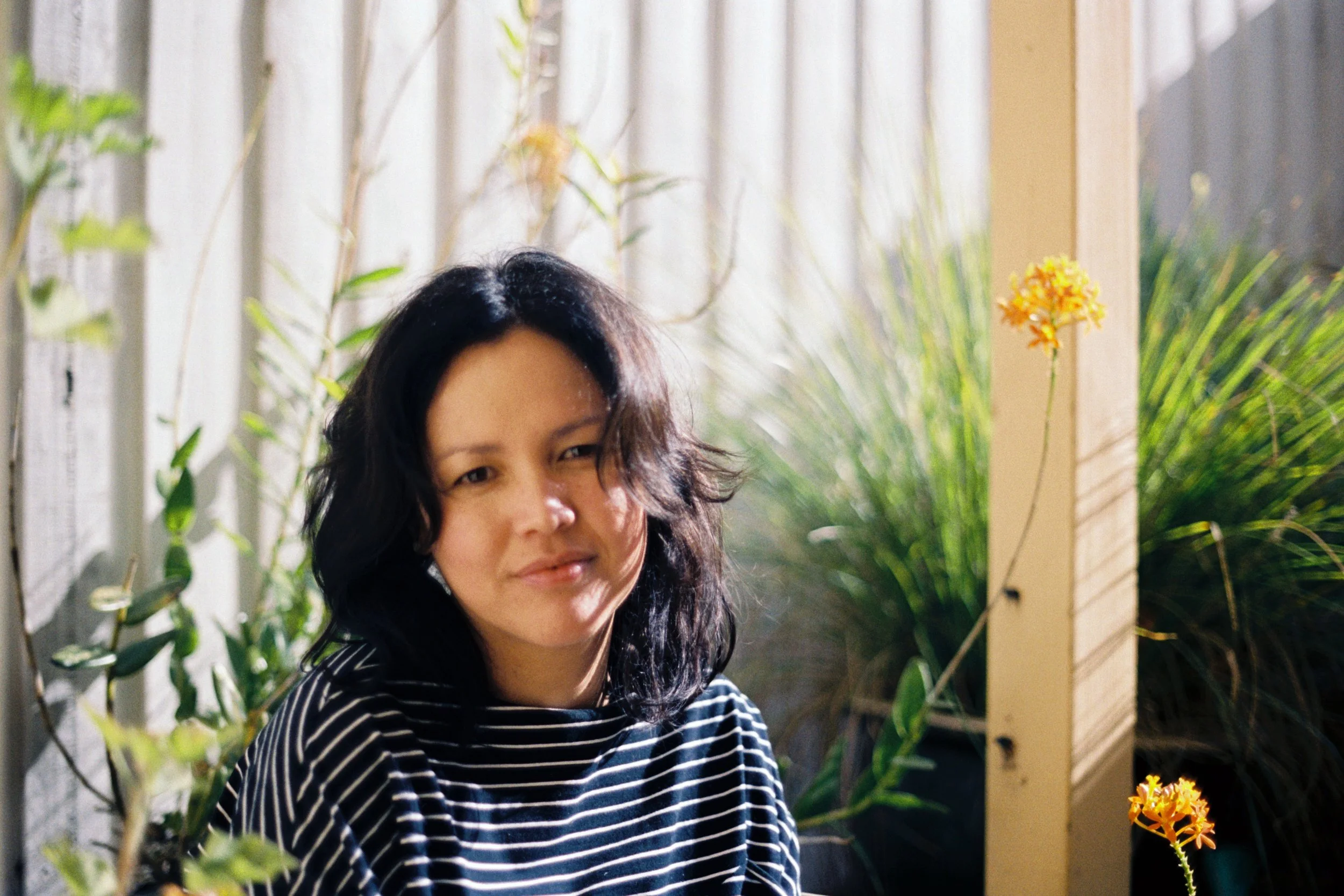Interview #228—Lucy Van
by Elena Gomez
Lucy Van writes poetry and criticism. Her poetry collection, The Open (Cordite, 2021), was listed for the Stella prize and Mary Gilmore award, and highly commended by the Anne Elder award. Her essay, ‘Agent of the Year’ (Liminal Review of Books), won the non-fiction category of the Woollahra Digital Literary Awards (2024).
With Anne Maxwell, her new book is Australian Women’s Historical Photography: Other Times, Other Views (Anthem 2024). She is an Honorary Fellow at the University of Melbourne, where she teaches literary studies.
Lucy spoke to Elena about what it is to name something, the obsolete cycles of modernity and the power of a killer sentence.
I want to ask you about the corn wolf.
That’s the name of Michael Taussig’s 2015 book, which introduced me to the idea. The Corn Wolf is identified in James Frazer’s The Golden Bough (1890), a really famous comparative survey of faith systems; it’s an anthropology classic—Frazer finds a system, or a kind of root, for all world beliefs. I haven’t thought about this for so long.
So ‘The Corn Wolf’ is the name given to something hidden in the last sheaf of corn that’s being harvested. If you’re working the harvest you don’t want to end up being the one who binds that sheaf, yet it’s also the name for the last sheaf, but it’s also the Corn Wolf who is the person who binds. The idea of the Corn Wolf, then, is the movement that language makes from this one thing—the sheaf of corn, which is wheat—to the binder. On the one hand, this is something that it didn’t seem we would have anymore, the idea that there’s something that’s the last sheaf of anything in a harvest, or even that a harvest could end. It’s an interesting idea … the Corn Wolf symbolises the vegetable god’s death and its resurrection. On the other hand, we do have precisely this sense of the movement in language, as in, the movement of the name ‘Corn Wolf’ from the sheaf to the binder is something that still happens in language—this kind of movement in language is something that’s familiar to us. Contra Frazer, for [the philosopher Ludwig] Wittgenstein this is a magic that we are perfectly familiar with. But I think there’s still a tension and an interesting scene of loss, suggested by the Corn Wolf, even if language finds ways to keep wolfing.
This idea of harvests links to a sense of time, and in your book, The Open, there’s something about the relationship between movement and time. When people tell a writer what’s in their work, it’s a little bit incorrect. What I mean to say is, what are the things you’re thinking about?
I think the idea of something being the last thing was very interesting; there is something sacred about it, and it bothers me that vegetables and fruits are always available at the supermarket. I’ve got to get this idea a bit more straight, but it’s to do with a loss of the sacred or the loss of an opportunity for a particular ritual in language when you no longer have finitude—when you lose that sense of loss and regaining. You have no occasions for the ritual, or for saying something about it.
The seasons and cycles become obsolete, or overridden.
I think people often think of language as a form of magic, a form of fantasy. Calling something ‘the corn wolf’: you’ve named that thing. You lose those occasions for naming something. At the same time, as Walter Benjamin said, modernity also has magic, but we take all of these measures to block our view of it. I’m obsessed with Frazer’s writing about fertility and seasons, with agriculture and agribusiness, and their correspondences to writing. Taussig talks about academic writing as a sort of a magic. But when it comes to agribusiness—the equivalent of which in writing is pumping out quick forms—you have no sense of specificity of what the language is corresponding to in a sensuous sort of way.
Would you call it a flattening?
Yes, he’s saying it’s monocultural. It’s about the world.
Driving towards something that is reproducible, and which removes distinguishing features.
Yes. What is going on with the Earth, and the way our distractions or practices on the land are directly affected by how we write. This idea of language is also very profound because it is not aligned with the idea of the arbitrariness of the relation between the signifier and the signified.
I wanted to ask about how you see the role of the poet–critic. It seems somewhat common these days that to be a poet often also means working as a critic or academic. How do you engage with these modes? Are they related for you?
I would presume they are totally related. To make the distinction, one writes poetry or essays. They’re not generically that different. The labour is a bit different and maybe the industry framing is different, but it can’t be an accident that poets generally write great essays. For what it’s worth, it’s fiction—novels, short stories—that doesn’t fit. That’s the thing that I don’t want to be engaged with. But the modes of address in the poem and the essay can be quite connected. Even politically, I think there are other interesting reasons for thinking of criticism and poetry as being close, almost collapsing. But also generally, people don’t feel that kind of language work should be in fiction.
If you’re thinking about an idea … maybe the corn wolf, let’s say. What form do you go to?
I always want to be writing an essay. It’s not that it’s harder, but I feel like it somehow demands something that feels like it’s in short supply in me, a certain kind of concentration.
Are you saying poems are easier to write?
Yes. [laughs] I don’t know why. I feel like essays are really hard, or maybe the essay has so many more ways it can grow wrong, because it doesn’t have a map. Even a poem can have more of a map. I’m always trying to write an essay, whereas with poems I’m writing from different impulses, or I’m writing a poem because someone asked me to. But the essay … no one asked me to do that.
How did you become a poet?
[laughs] I don’t know!
Well you’ve got all these people are asking you to write poems!
I feel like I always wrote poems. But I thought that all my poems stank, or something. And then maybe that feeling went away. I only wanted to read and write about poetry; that was a really specific thing. At the same time, I think if you just read heaps of poetry, at a certain point you just start [writing it]. That’s how I started writing poetry in its second phase. I read a particular amount, and then I was reading a particular amount of very good poetry, and it impressed itself on me. That said, I never want to impose the poetry that I write on anyone.
And then at some point you learned about essays? Because that’s not really a form children know, but we do encounter poems and short stories as children. Do you remember the first essays you read?
I’ve never thought about that. Maybe in first year uni … I mean, surely I read essays before that. Something from [Jacques] Lacan’s ‘On the Names-of-the-Father’—I remember that being one of the first essays I read. This seems crazy to me, but I really do remember being given that to read in first year! I feel like I went to uni at this particular moment, during the end of postmodernism, the tail end of deconstructionism. I remember reading [Jean] Baudrillard essays and loving them—for example in The Gulf War Did Not Take Place, you know those. They were amazing. [Roland] Barthes was a huge thing, so was [Julia] Kristeva. And I think to be honest, all those Frenchies ... I feel like that was the form of writing that I’d never really seen done. That’s what switched everything on.
You also write essays about poetry.
You’re still putting pressure on language. It corresponds in a physical way that a poem also might do. But you’re trying to make it abide to the thing. So I feel that’s why poets write great essays. There’s an affordance there.
I feel weird now! I didn’t realise I was going to advocate so hard for essays. But the things that made me sit up when I was reading were these really wild essays. Where all of [the form’s] fallacies are deployed. I think poems are very fine. What’s happening right now is I’m trying to avoid talking about poetry. I’ve taken a measure to seem like I really care about essays, to protect poetry. I think that that’s actually an incredibly strong impulse.
Something that happens often in your writing, regardless of form, which Gareth Morgan has identified, is the sentence, the way that you write a sentence.
I love that review so much. And sorry to interrupt you but that’s what I mean. Gareth’s a great example. A great poet who can write such a great essay.
Your poems have sentences and your essays obviously have sentences. But what I’m trying to work out is, what makes a Lucy Van Sentence? Is it motion? Is it image? Is it sound or none of these?
It’s like bondage. You become entrapped, you’re under its command. So sometimes the writer writes a sentence that imprisons themselves, or imprisons you, the reader. You have to get to the end of the sentence. It’s like doing time. For months now I’ve been using Don Delillo’s Libra as my sleeping medicine, as an audiobook. Its sentences are a momentary spell, and his sentences always seem to end in these two-syllable words for some reason. This slightly classical dactyl. It’s got this deceptively light ending. It seems flippant or something, but you’re getting a mic drop ending at the same time. It’s a form of entrapment because I always fall asleep.
I had this clever student who wrote about Emily Dickinson, who didn’t write in sentences. I loved the student’s description of Dickinson’s lines as dilation, such as when an ambulance drives past, the siren slows down, and then you don’t hear it. And then it drives on and pulls back out and then it speeds up. The sentence can be like that. Often while writing, when I was unhappy with something, I was writing, [and] it felt like I was swimming. When something you’re writing isn’t working, it feels like you’re trying to swim to the other end, which is your sentence end. And you can’t stop or you’ll drown. And even though you can’t see it, the way is right [there] at the end of the lane. There’s a surface-level thing that one is working out, and there’s this internal thing that’s happening in a way that we don’t quite know.
I didn’t realise I would also talk about magic and luck so much. But there’s a huge element of luck [when it comes to sentences]. It’s a bit serendipitous. It’s impressively not conscious in a lot of ways. Impressively. A lot of the writing I like that I’ve done was under those conditions. Of not knowing what I was doing.
I have another question, and then we’ve got to take another dip. When you teach poetry to people, what do you think about, and what do you want people to take away?
This is such a bad, technical answer, but it’s the truth. It’s informed by Tom Ford’s How To Read A Poem In Seven Steps. He wove in this idea that if you can read this sentence or that sign, you can read a poem. If you can read in the English language, you can read a poem, but we often feel like we can’t. I think the very rustic charm of that appealed to me a lot. Instead of overcooking the teaching and saying ‘this is an anticolonial text’ or ‘this is a counter reading of this seminal thing’, you get away from presupposing the reading, and to look at what you’re actually doing.
And maybe I’m wrong, maybe it’s different now, but a lot of what we read in literary criticism, they don’t seem particularly attuned to poems. They pick up on themes or talk about poetry as if it is a small piece of text that exemplifies the same thing that could be in a Joseph Conrad novel, for example. What I want is for people to feel what is specific to poetry, which is also then to open the other can of worms, where you have to commit to saying that something is a poem, and affirm particular criteria for that. It’s interesting—you build a world from that. But that starts from, ‘how do you attune to what is a physical presence of a set of words?’ It’s almost like the word ‘poem’ gets in the way of distilling that. Those classes immediately congeal into thematic and political discussions. It’s not like we’re sitting around like New Critics talking about these abstract works with no relation to a context. It immediately becomes located. It’s just really fun. It’s so fun doing that and not really demanding too much more.
And you know what I think? It’s so weird, but I think that our reality, because we’re in a language with reality, contains all these poems already. I really think that. Not just because they’re so seminal, but they have this resonance. They’ve been kept in people’s orbits—not necessarily the academics, but for everyone—in the background of language. What can happen is this continuity can be revealed. Like the lettuce. Sappho is still around; it’s still clanging around when we speak to each other. And Robert Palmer’s ‘Addicted to Love’ ... if you look at those lyrics, which is one of the songs that my friend Cameron likes to send me as a slowed-down version, it’s like your heart sweats, your body shakes, another kiss is all it takes. It’s exactly like Sappho’s fragment 31. The same text. I’m not sure if Palmer read Sappho, but his language retains the consciousness. It’s a form of becoming aware of what’s in our language. That’s what I reckon.
I’ve noticed in your writing a sense of deep time. For example, the history of the t-shirt in your review of π.O.’s book The Tour. Is that something you’re thinking about?
It’s a way of saying or feeling things that’s always really appealed to me. It’s like if someone were to come up with the history of indigo (I think Taussig also wrote about this)—the labour of the people, the vats of Indigo, bodies died blue, the denim. I wouldn’t say they’re stories, but experiences and history accumulate around objects. There’s something very important about it. I think that’s the word. To name their presence is an important task.
Do you feel pressure to respond or be in a certain way in relation to the history of your self and your family? It’s not something I’ve seen overtly in your writing, though you do write about it in The Open. For some writers it’s a big part of their practice. What’s your relationship to it in terms of how you feel?
I’ll always remember Bella Li’s response. It’s in one of these Liminal interviews. The question was [something like] what does being an Asian Australian or Asian writer mean to you, and she said it means freedom. I thought it was a really interesting answer because surely she couldn’t have meant it in a hyper-literal sense. It’s not that it’s freedom but that you have a particular standpoint, because the way that you’re located is slightly out[side], you know? In a way it’s everything, even if it’s not empirically or thematically about that … it’s never about your grandmother, I don’t know, shelling prawns ... do you know what I mean?
I like this idea of freedom. It’s a positive orientation. I’m a lot more ruled by ‘should’ than I should be (yes I did hear myself), but I always felt unable to creatively engage with that part of myself.
Merlinda Bobis, who is such an incredible poet, and different from any other poet in Australia, wrote this essay asking, ‘when am I a permanent resident?’ This idea of having a permanent residency and this other idea of being a good little migrant, cooking your food. Every time you come back and cross the border, you have to show your papers. And I feel like [if you were] writing about your grandfather’s farm, it’s a little bit like showing your identity papers so you can cross the border, you know? Even though there are political aspects I personally like about it; it recognises an institutional situation. ‘Here is my family history’: it becomes akin to a census scene. I don’t really feel pressure, but there is some unspoken expectation that maybe I’ll do something like that. Notes from the east.
It’s like a spectre. You either do it or you don’t, but it’s always there. The Liminal festival felt so expansive and free, in the sense Bella Li described. Everyone was able to share what they were doing and thinking about, without structures determining rules.
It’s funny. I’m sure it’s been written about in more expressive and detailed ways. I’m just really suspicious about [the pressure to write about our experience of racialised identity]: whose interest does it serve? It’s there to enable white racism’s evasion of responsibility. I feel like it’s unsettling if everyone who’s a ‘writer of colour’—and I always hate that term—[talks about their identity], but if none of them do it, it’s a bit of a checkmate. If it delivers the multiculturalism that would get people off the hook, then it would mean that multiculturalism is real. Like, I do shell prawns, and I do have a bà nội. There is something nice about keeping that for ourselves. It isn’t for people’s consumption.
Do you have any new projects you’re working on? Any new obsessions?
I am obsessed with the role of language in the real estate crisis in Australia and I’m writing—very slowly—a book of essays about real estate as the national poetry. I also have a collaborative work called Material coming out, where I’m working with a photographer, Christine Pont, and a musician, Oï les Ox. They’re both based in France and we don’t seem to be getting along very well at the moment! I think the last thing I said to them was, ‘I literally have no idea what this project is. Do whatever’. But I will apologise for being so rude, so hopefully, or at least in theory, the work is coming out soon.
Find out more
Interview by Elena Gomez
Photographs by Leah Jing McIntosh

